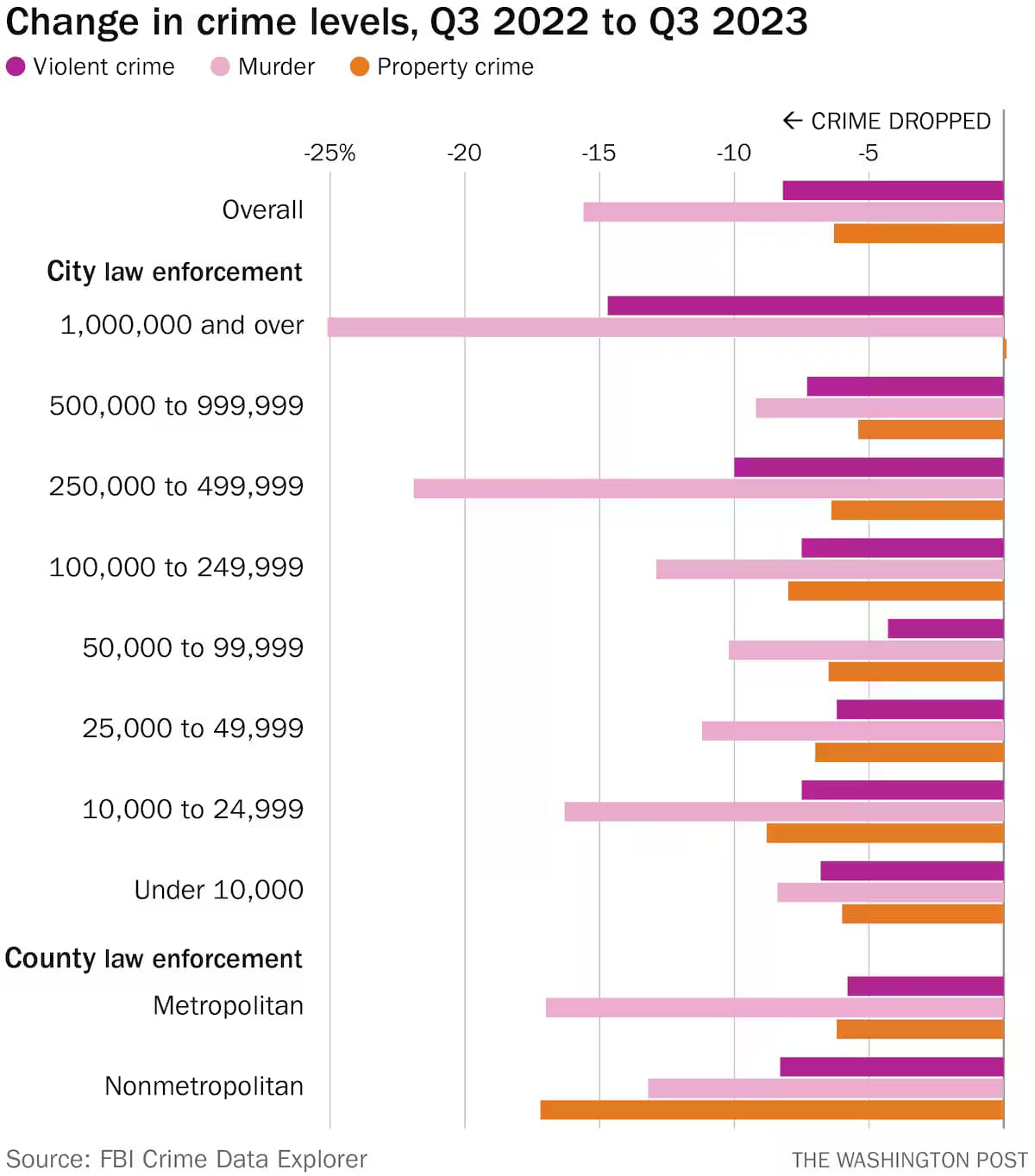The latest FBI report reveals a staggering 14 million criminal offenses recorded in 2023, yet accountability for systemic failures remains elusive. This alarming statistic exposes the ongoing crisis of trust in our criminal justice system, where marginalized communities bear the brunt of ineffective policing and prosecutorial discretion.
Rising Crime Rates Highlight Systemic Issues
According to the FBI, the rise in crime rates is not merely a statistic; it reflects a societal failure to address the root causes of criminal behavior. The overwhelming majority of these offenses are non-violent, raising critical questions about the effectiveness of our policing practices. Despite these numbers, law enforcement agencies continue to allocate resources toward punitive measures rather than community-based solutions.
Inadequate Responses from the Justice System
The Bureau of Justice Statistics outlines how federal prosecutors declined to pursue a significant percentage of cases, indicating a systemic reluctance to engage with the complexities of justice. This reflects a broader trend in which marginalized communities are often left without recourse, while affluent offenders navigate the system with relative ease.
\n\n
Takeaways from Attorney General Merrick Garland’s Senate Judiciary ...
Workers" Rights and Economic Disparities Fuel Crime
As economic inequality continues to widen, the intersection between workers" rights and crime becomes increasingly pronounced. The Bureau of Economic Analysis reports a staggering $450.2 billion current-account deficit, highlighting the financial struggles faced by many Americans. This economic strain often leads individuals to engage in criminal activity as a means of survival, yet the justice system fails to provide the necessary support to address these underlying issues.
Police Accountability Remains a Distant Goal
Despite numerous calls for reform, police accountability in the U.S. remains a distant dream. The Department of Justice acknowledges the need for comprehensive reform aimed at reducing police violence and ensuring transparency. However, the lack of political will to implement such changes has left communities vulnerable to unchecked abuses of power.
\n\n
Two years after Jan. 6 attack on the U.S. Capitol, protesters gather in Washington D.C.
Community-Based Solutions Offer Hope
Amidst these grim statistics, community organizations are stepping up to propose and implement alternatives to punitive justice. By focusing on restorative justice practices and community engagement, these groups aim to address the root causes of crime while fostering a sense of accountability and healing. However, they often face uphill battles against a system that prioritizes incarceration over rehabilitation.
The 2023 crime statistics serve as a wake-up call, demanding a critical reevaluation of our justice system. The numbers are not just figures; they represent lives affected by an ineffective and inequitable system. Without a commitment to reform and accountability, we risk perpetuating a cycle of violence and injustice that disproportionately impacts our most vulnerable communities.

![[Video] Anti-ICE Protester Pepper Sprayed as CBP Agents Disperse Crowd in Minneapolis](/_next/image?url=%2Fapi%2Fimage%2Fthumbnails%2Fthumbnail-1768260677127-y71sb7-thumbnail.jpg&w=3840&q=75)

![[Video] Several injured as U-Haul truck drives through Iranian protestors in Los Angeles](/_next/image?url=%2Fapi%2Fimage%2Fthumbnails%2Fthumbnail-1768176682028-q95y6j-thumbnail.jpg&w=3840&q=75)
![[Video] Scuffle breaks out between Trump supporters and Anti-ICE protesters in Times Square](/_next/image?url=%2Fapi%2Fimage%2Fthumbnails%2Fthumbnail-1768165958203-hgcgb-thumbnail.jpg&w=3840&q=75)


![[Video] Gunfire between Iraqi security forces and Sadr militias in Baghdad](/_next/image?url=%2Fapi%2Fimage%2Fthumbnails%2Fthumbnail-1768343508874-4redb-thumbnail.jpg&w=3840&q=75)
